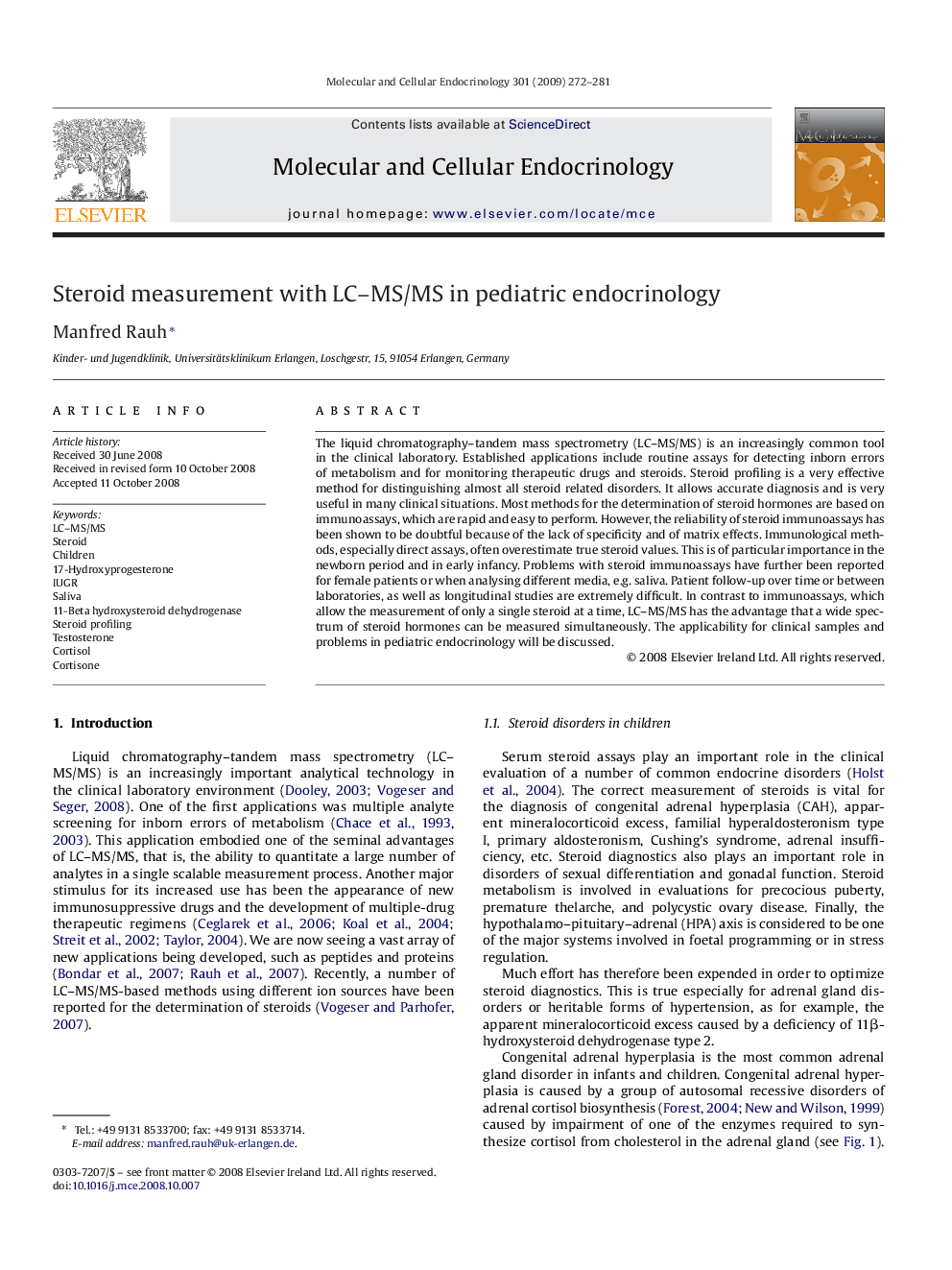| Article ID | Journal | Published Year | Pages | File Type |
|---|---|---|---|---|
| 2197389 | Molecular and Cellular Endocrinology | 2009 | 10 Pages |
The liquid chromatography–tandem mass spectrometry (LC–MS/MS) is an increasingly common tool in the clinical laboratory. Established applications include routine assays for detecting inborn errors of metabolism and for monitoring therapeutic drugs and steroids. Steroid profiling is a very effective method for distinguishing almost all steroid related disorders. It allows accurate diagnosis and is very useful in many clinical situations. Most methods for the determination of steroid hormones are based on immunoassays, which are rapid and easy to perform. However, the reliability of steroid immunoassays has been shown to be doubtful because of the lack of specificity and of matrix effects. Immunological methods, especially direct assays, often overestimate true steroid values. This is of particular importance in the newborn period and in early infancy. Problems with steroid immunoassays have further been reported for female patients or when analysing different media, e.g. saliva. Patient follow-up over time or between laboratories, as well as longitudinal studies are extremely difficult. In contrast to immunoassays, which allow the measurement of only a single steroid at a time, LC–MS/MS has the advantage that a wide spectrum of steroid hormones can be measured simultaneously. The applicability for clinical samples and problems in pediatric endocrinology will be discussed.
